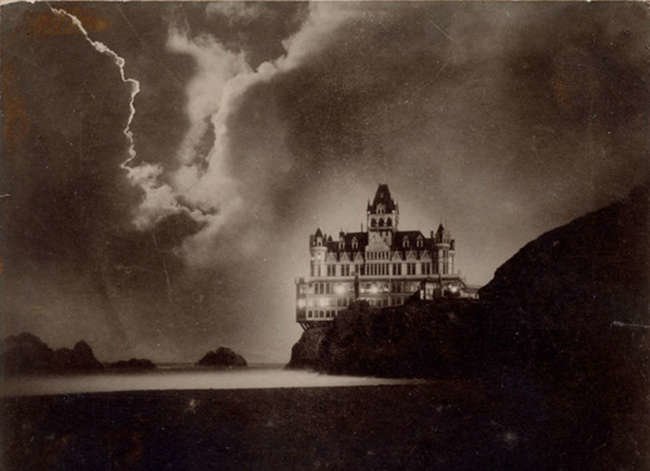We may earn revenue from the products available on this page and participate in affiliate programs. Learn More ›
Beacon Towers – Sands Point, New York
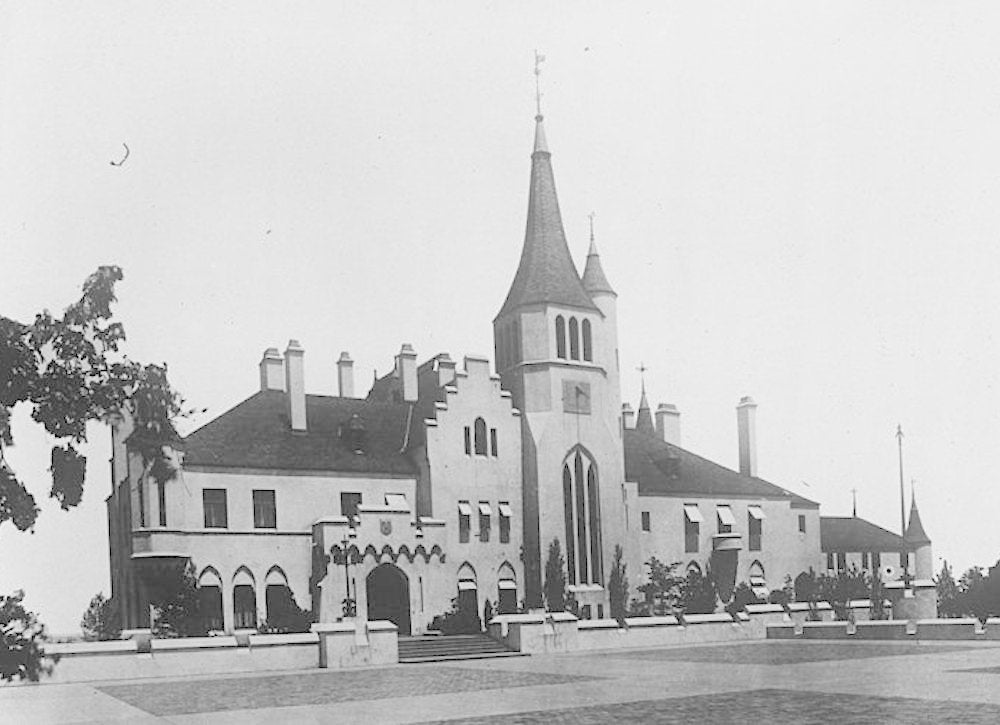
Like a vision straight out of The Great Gatsby, this gothic-style Gilded Age palace situated on the shores of Long Island Sound was built in 1918 for Alva Belmont, who was once married to a Vanderbilt. William Randolph Hearst, of Hearst Newspapers and Hearst Castle fame, later owned the spired vision, but it was demolished just a few short years after he sold it.
William A. Clark House – New York, New York
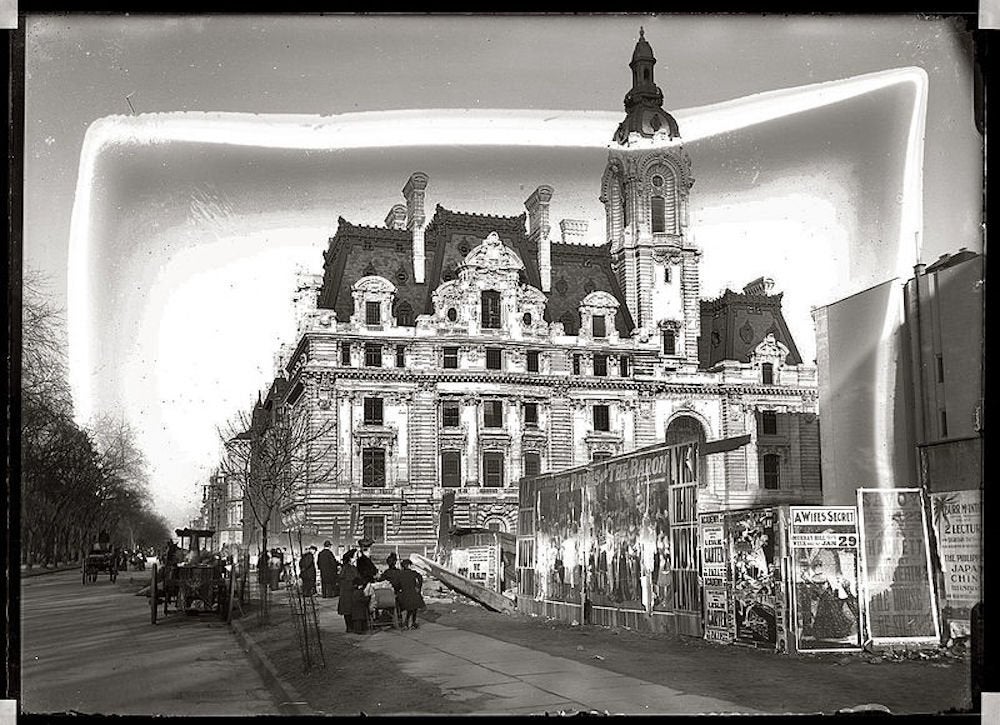
A fabulously rich entrepreneur from Montana spared no expense building this 121-room behemoth that once stood on the corner of Fifth Avenue and 77th Street in Manhattan. Completed in 1911, the house cost $7 million (that’s $178,075,000 by today’s standards), in large part because of the extravagant materials used to construct it. Italian marble, parts of French châteaux, and wood from England’s Sherwood Forest once graced the elaborate home, which was reduced to rubble by 1925 and replaced with a luxury apartment building.
Related: Antiquing vs. Distressing: 8 Tips on Creating the Look and Patina of a Genuine Antique
Palmer Mansion – Chicago, Illinois
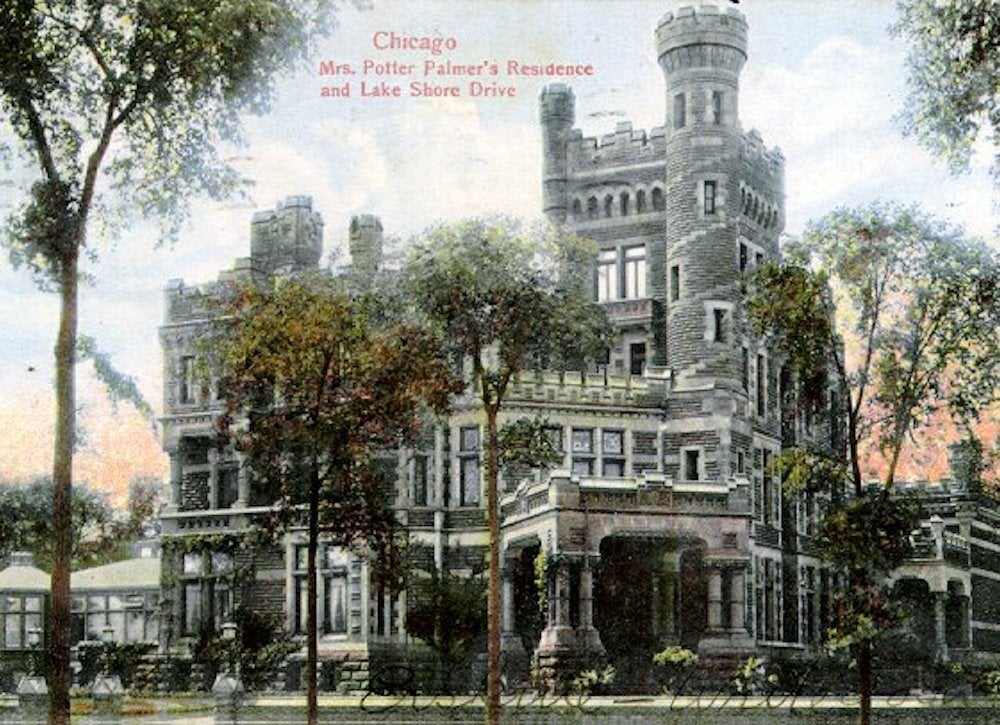
Once the largest private residence in Chicago, Bertha and Potter Palmer’s home was one of the first to be built on the city’s famed Gold Coast along the shores of Lake Michigan. Erected in 1885 and torn down in 1950, the Romanesque mansion featured an 80-foot central spiral staircase and a collection of masterpieces by artists like Degas and Picasso. Many of these works now reside at the Art Institute of Chicago.
George Pullman Mansion – Chicago, Illinois
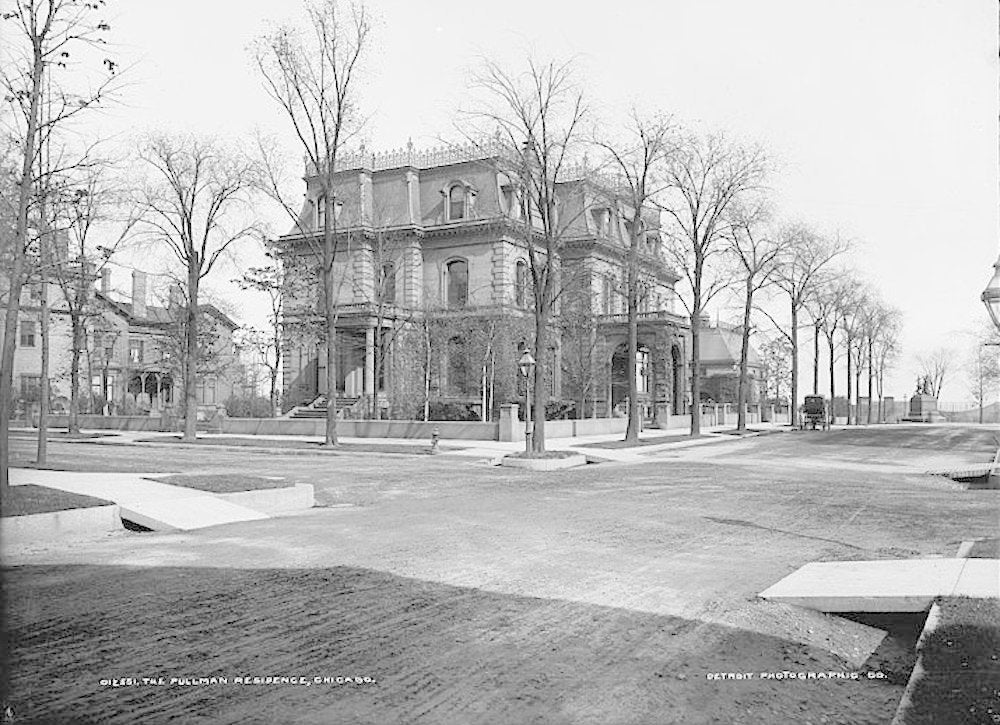
Another locus of Chicago’s mighty wealth was Prairie Avenue, where the home of George Pullman, the man behind the booming Pullman Company, once stood. The 7,000-square-foot home was clad in Connecticut brownstone and included a 200-seat theater and bowling alley. It was destroyed in 1922 as the surrounding neighborhood began to decline.
Chetwode Mansion – Newport, Rhode Island
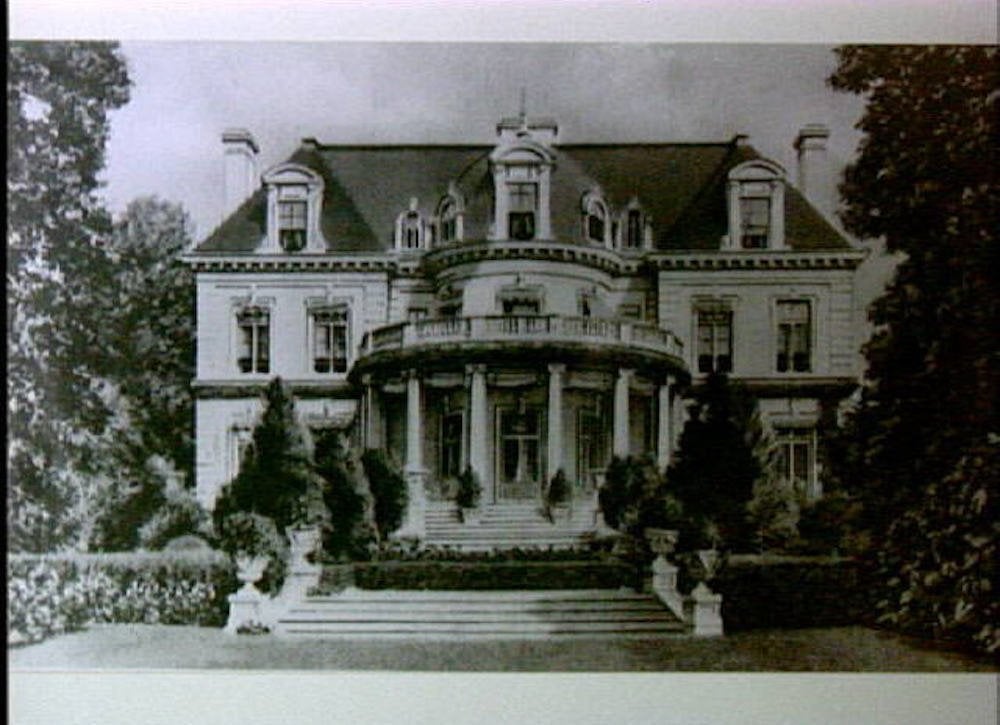
With a white and gold interior inspired by the king’s quarters at Versailles, this lavish 1903 mansion was purchased in 1934 by a young John Jacob Astor III as a home for himself and his new bride. They divorced five years later and placed the home and its contents on the auction block. The residence passed through a series of hands, then was burned and razed in 1973.
Mark Hopkins Mansion – San Francisco, California
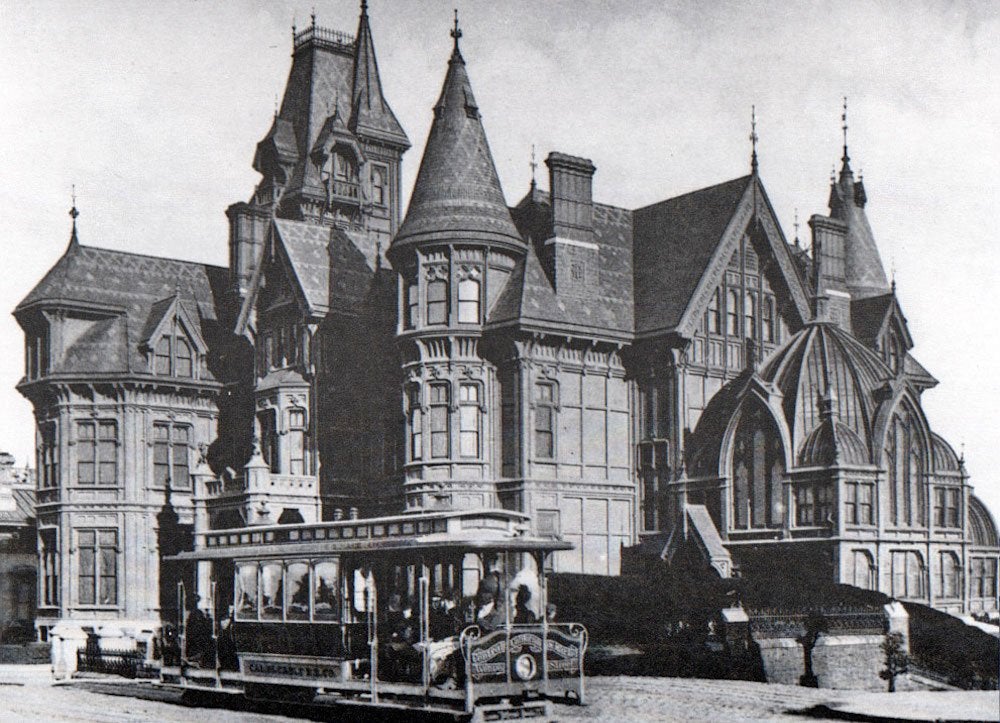
One of the founders of the Central Pacific Railroad, Mark Hopkins built a sprawling, palatial home on the peak of Nob Hill and topped it with a tower that was at the time the highest point in San Francisco. The mighty mansion survived the 1906 earthquake only to be consumed by the subsequent fire three days later. Its lot is now the site of the InterContinental Mark Hopkins Hotel.
The Cliff House – San Francisco, California
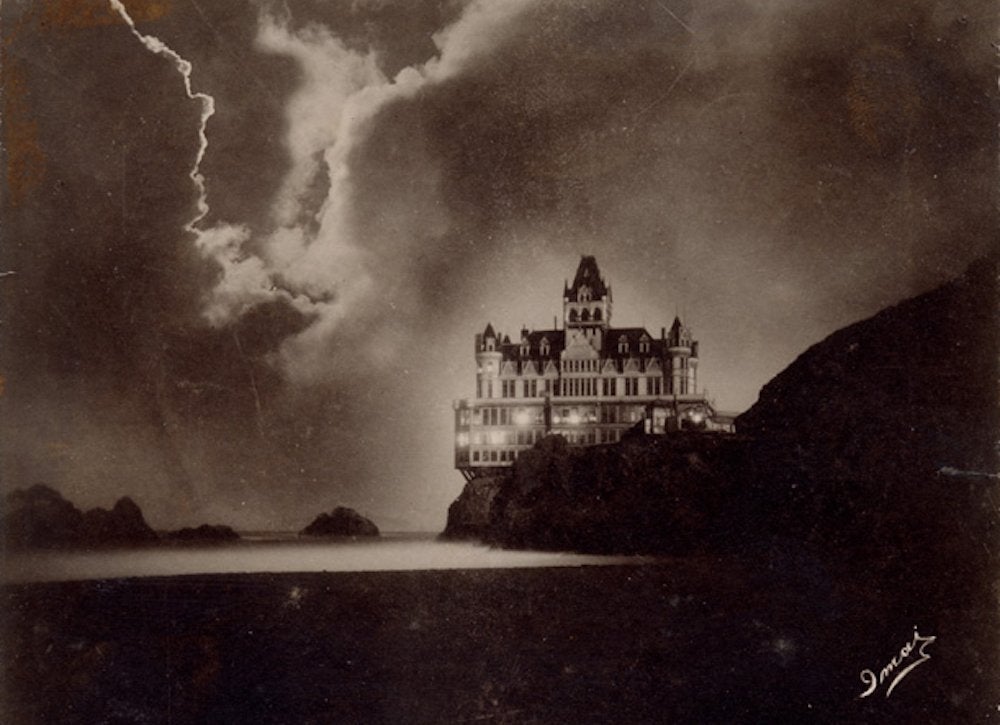
Perched on a dramatic outcropping at headlands just north of Ocean Beach, the first Cliff House was built by an ex-Mormon elder from Maine, who constructed the mansion from salvaged lumber taken from a shipwreck on the rocks below. That early edifice gave way to several more incarnations of varying degrees of size and opulence. The current structure on this scenic promontory is a restaurant, part of the federally operated Golden Gate National Recreation Area.
C.M. Forbes Mansion – Portland, Oregon
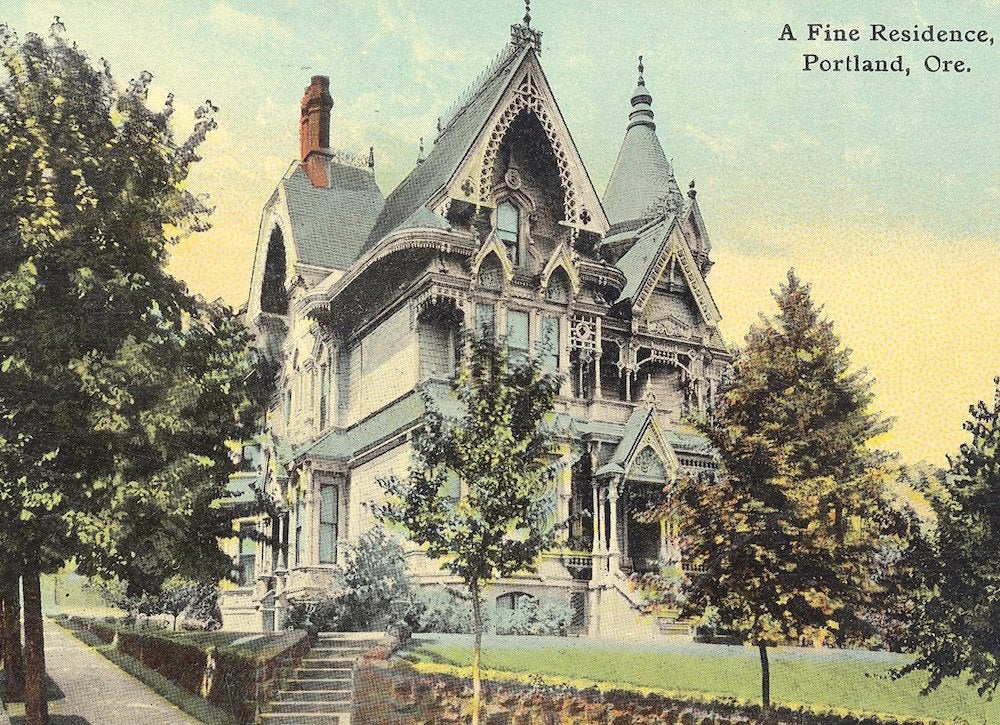
This jaw-dropping Queen Anne Victorian was constructed on Park Place and Southwest Vista Avenue in 1887 by C.M. Forbes, the owner of a furniture store. It is believed to have been torn down in the 1930s. Today, a high-rise occupies the lot where the grand residence once stood.
Bradbury Mansion – Los Angeles, California
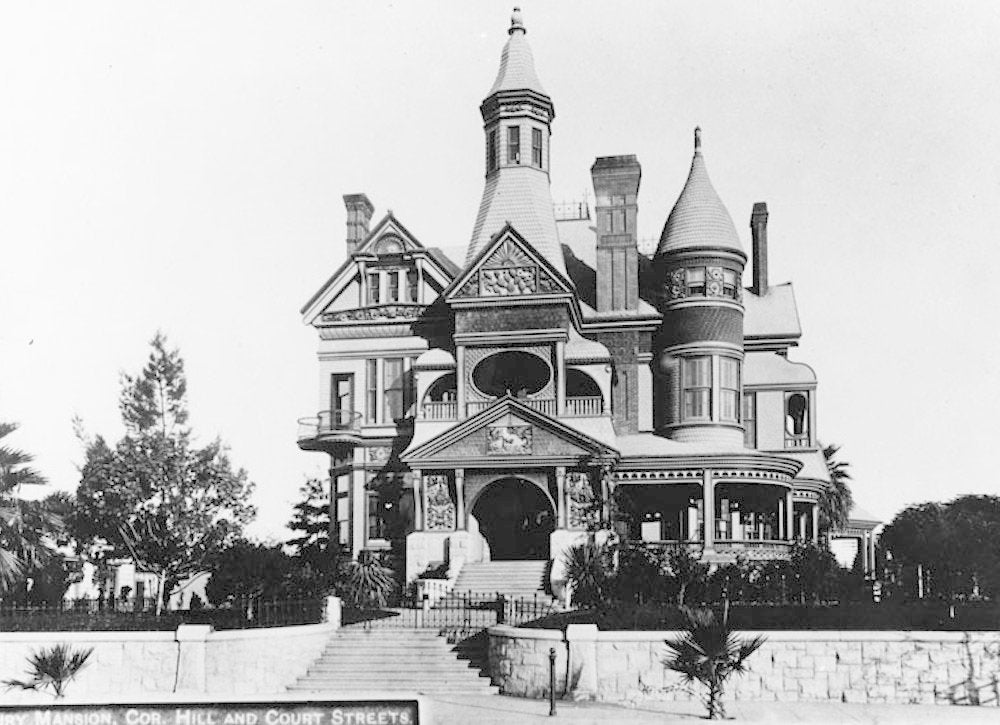
Part of a vanished Victorian neighborhood that once stood on Bunker Hill in downtown Los Angeles, this turreted 19th-century beauty was turned into movie studio offices by the first decades of the 20th century. In 1913, film star Harold Lloyd dubbed the old house “Pneumonia Hall” on account of the dreadful drafts. It was demolished in 1929.
Old Governor's Mansion – Topeka, Kansas
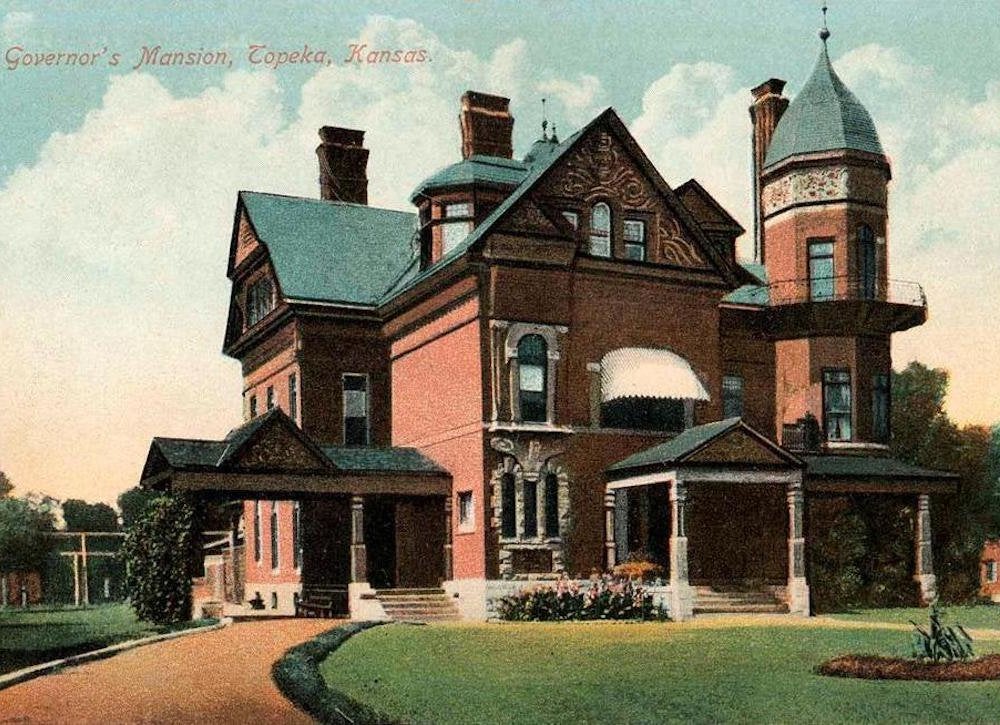
Occupying a generous site on Buchanan Street in Topeka, Kansas, this 1887 building by architect James Clinton Holland served as the state’s executive mansion from 1901 to 1963. Its bay windows, staircase, and balcony were repurposed to become part of a nearby Ramada hotel, but the rest of the stately home met the wrecking ball.
Related: 12 Easy and Inexpensive Ways to Upgrade Your Home’s Exterior
Vanderbilt Townhouse – New York, New York
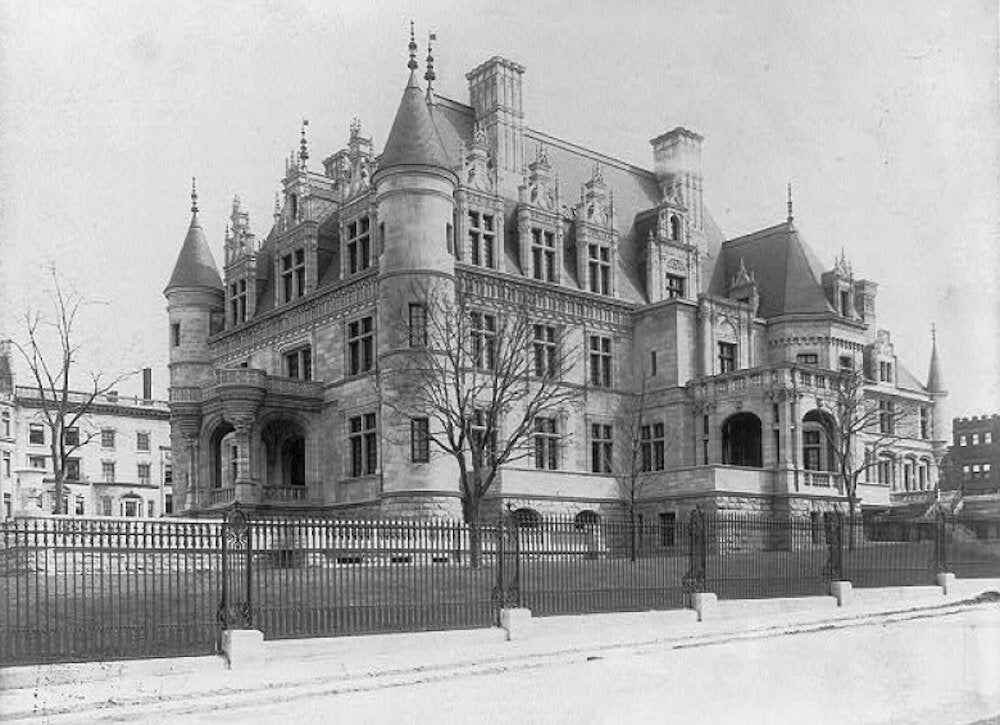
The Vanderbilts amassed a fortune from shipping, railroads, and other industries, then used their vast wealth to build a series of incredible Beaux Arts mansions. A case in point is the townhouse erected at the corner of West 57th Street and Fifth Avenue by Cornelius Vanderbilt II. It was and remains the largest private residence ever built in Manhattan. The Bergdorf Goodman store now stands on the site.
Related: The Most Famous House in Every State
La Ronda – Bryn Mawr, Pennsylvania
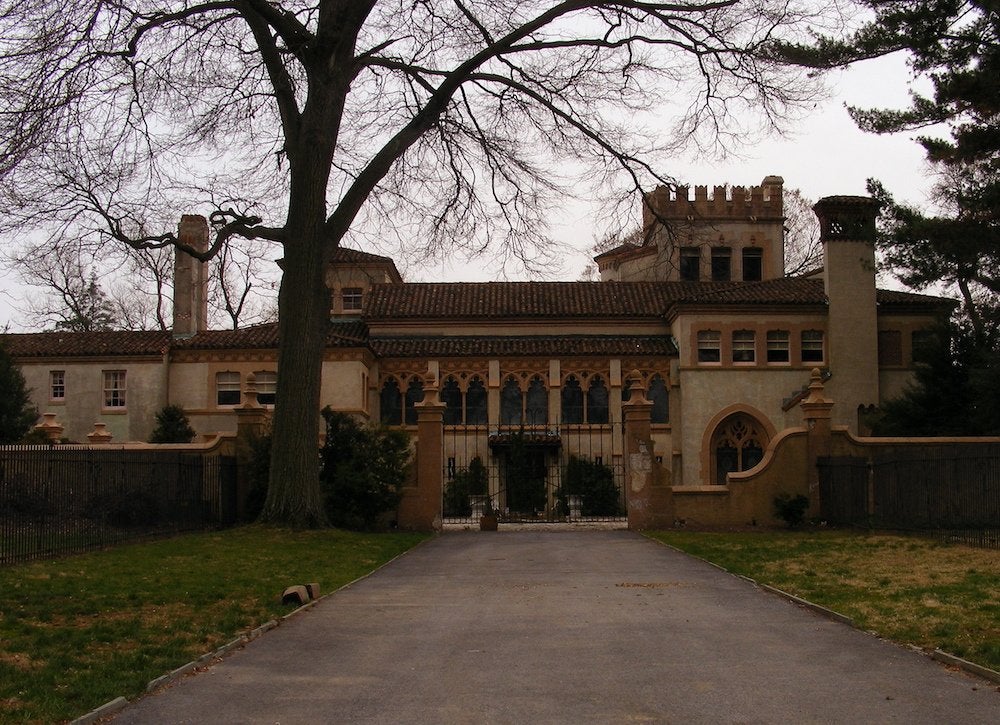
This masterwork of Mediterranean and Spanish Gothic architecture, designed by famed Palm Beach architect Addison Mizner, was the pride of Philadelphia’s Main Line. Home to Percival E. Foerderer, a leather manufacturer, the residence was torn down in 2009 despite vehement protests by preservationists.
Related: 16 American Towns Every Old-House Lover Needs to See
El Marisol – Palm Beach, Florida
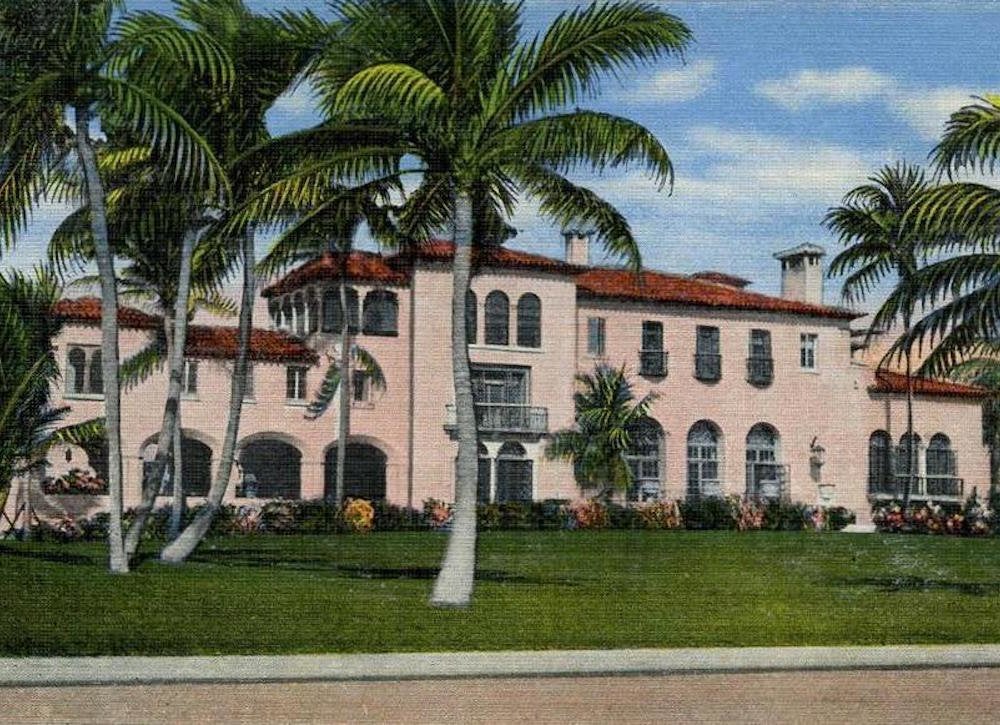
Another lost masterpiece by Addison Mizner, this bubblegum pink Spanish Colonial Revival mansion stood on Ocean Boulevard in Palm Beach from 1920 to the 1950s. A beach house for investment banker Edward T. Stotesbury, it boasted an auditorium, a 40-car garage, and a private zoo.
Related: 12 Exterior Paint Colors That’ll Help Sell Your House
Whitemarsh Hall – Wyndmoor, Pennsylvania
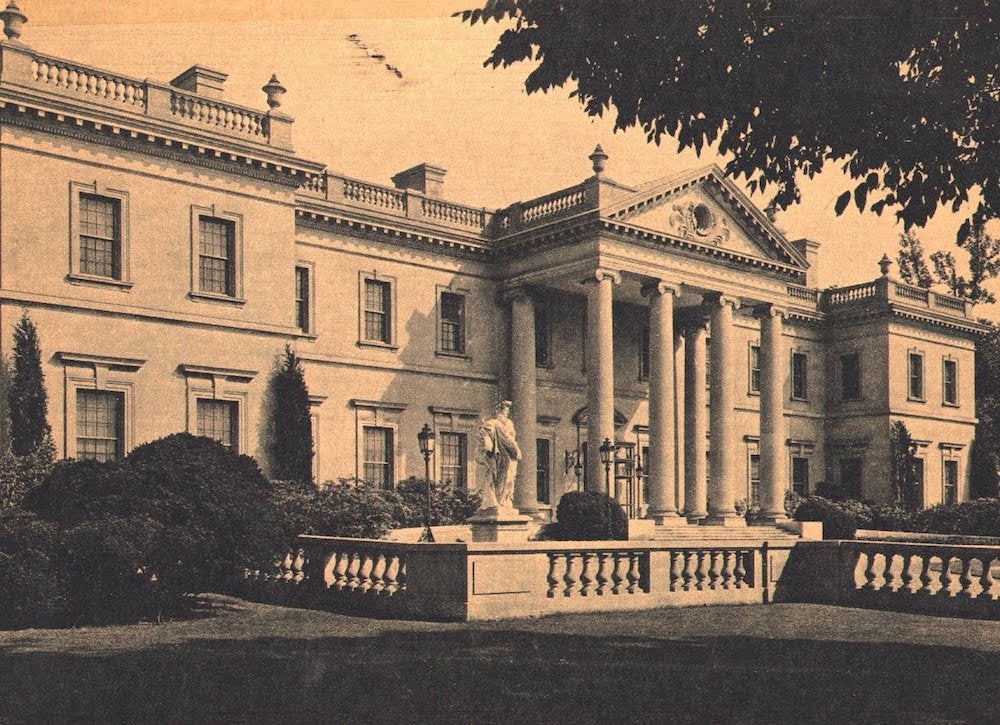
Edward T. Stotesbury’s Main Line home, often called the “American Versailles,” was one of the largest private homes ever built in America. Erected in 1921, the 147-room mansion was stuffed with paintings, tapestries, and sculptures, many of which later ended up in the Philadelphia Museum of Art. The building was torn down in 1980 and replaced by a townhouse development.
Related: 10 Fast-Growing Plants for (Almost) Instant Curb Appeal
Charles Schwab House – New York, New York
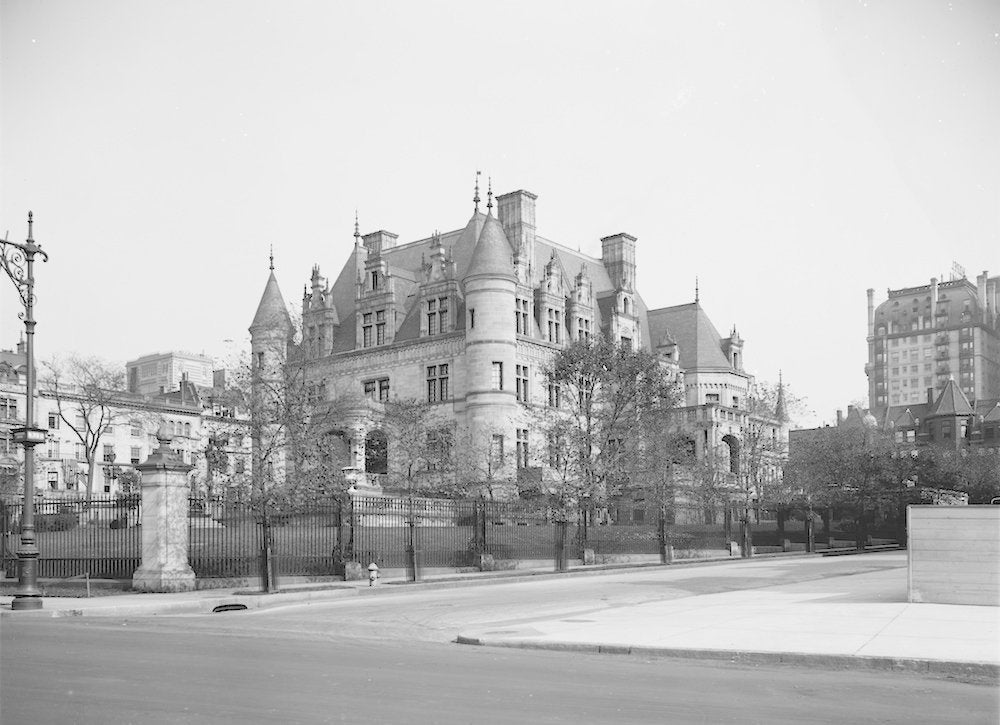
Steel king Charles M. Schwab was considered bold for building his $6 million 1906 Beaux Arts palace on the “wrong” side of town, overlooking the Hudson on Manhattan’s West Side. Schwab went bankrupt in the stock market crash of 1929, and when he died 10 years later, he bequeathed the house to the city to be used as the mayor’s mansion. His offer was spurned, and in 1948 the building was replaced by a towering apartment block still known as “Schwab House.”

Everything You Need for a Lush and Healthy Lawn
Keeping your grass green and your plants thriving doesn’t just take a green thumb—it starts with the right tools and supplies.
